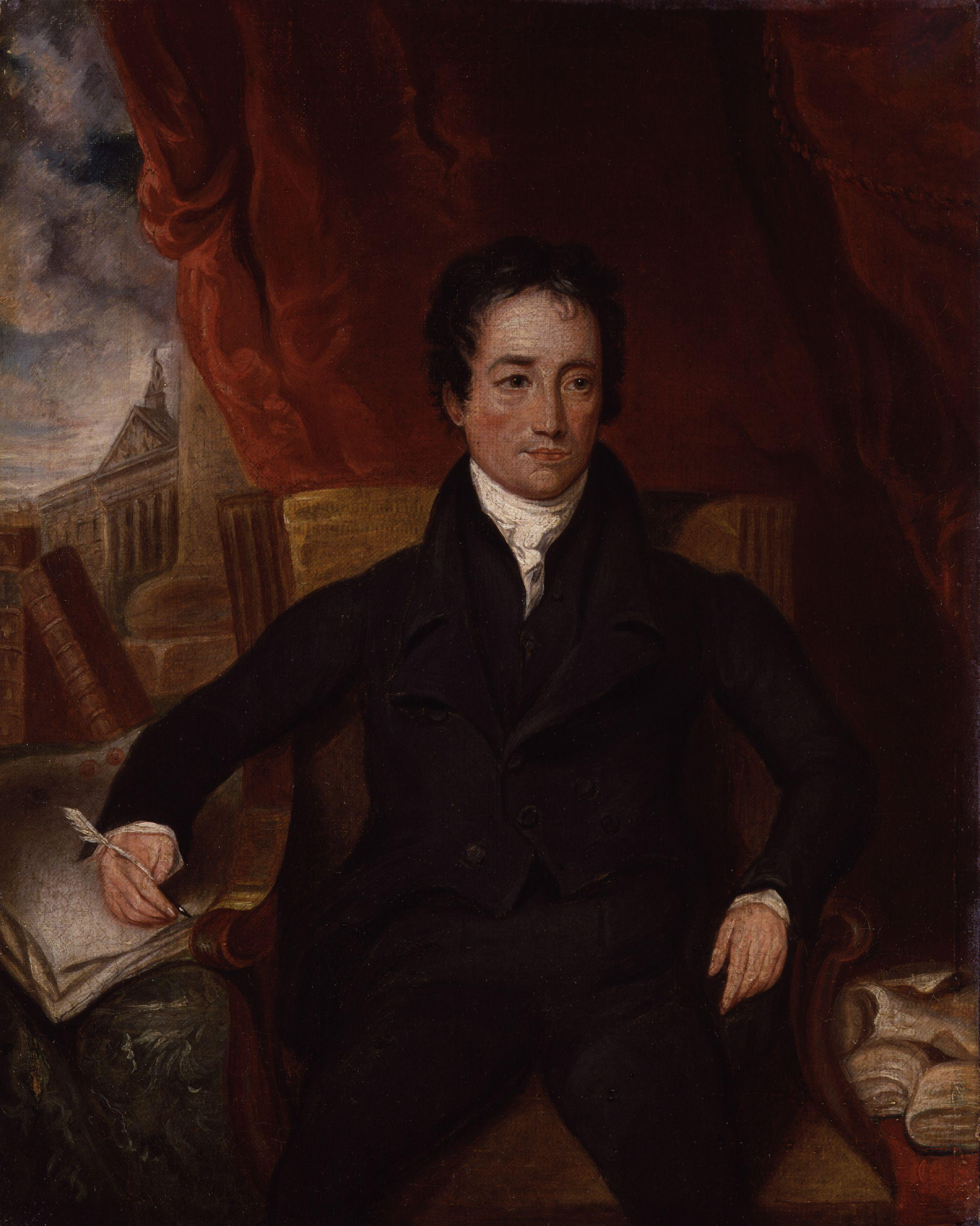“Il maggior piacere che conosco è fare una buona azione di nascosto e vederla scoprire per caso.”
citato in Selezione dal Reader's Digest, febbraio 1976
Charles Lamb è stato uno scrittore, poeta e drammaturgo inglese.
Ultimo figlio di John Lamb, studiò al Christ's Hospital assieme a Samuel Taylor Coleridge di cui fu sempre intimo amico. Lasciata precocemente la scuola, un difetto alla voce gli precluse la carriera ecclesiastica e si formò da autodidatta, mantenendosi dal 1792 come impiegato alla Compagnia Inglese delle Indie Orientali: la morte dell'avvocato datore di lavoro del padre aveva lasciato infatti in povertà la famiglia. Di temperamento melanconico, fu brevemente ricoverato in un ospedale psichiatrico nel 1795 ma riuscì, con l'aiuto degli amici, ad ottenere la potestà sulla sorella Mary Lamb evitandole la reclusione a vita dopo che essa ebbe accoltellato a morte la madre nel 1796 durante una crisi di follia.
La prima pubblicazione di quattro sonetti fu all'interno del volume Poems on Various Subjects, la prima raccolta di Coleridge. Conobbe William e Dorothy Wordsworth a Nether Stowey, nel Somerset durante un viaggio estivo. Strinse amicizia anche con Percy Bysshe Shelley, William Hazlitt e Leigh Hunt. Socievole e loquace, poco incline al sentimento romantico per la natura come lo interpretavano Coleridge e Wordsworth, visse sempre a Londra, partecipando intensamente alla vita sociale, teatrale e letteraria.
Nel 1798 pubblicò il romanzo A Tale of Rosamund Gray, nel 1802 la tragedia John Woodvil e nel 1806 fu rappresentata al Teatro Drury Lane la farsa comica Mr. H-. Prese poi la strada della scrittura saggistica: allacciandosi alle riflessioni su Shakespeare che anche Coleridge andava elaborando e per questo considerato al pari suo e di William Hazlitt l'antesignano della moderna critica shakespeariana, pubblicò nel 1808 l'antologia commentata Specimens of English Dramatic Poets Who Lived About the Time of Shakespeare gettando nuova luce su autori dimenticati e nel 1811 la raccolta di articoli On the Tragedies of Shakespeare . Interessato all'originalità e alla singolarità letteraria che inseguiva con entusiasmo critico molto personale, considerava i capolavori elisabettiani più per la lettura che non per la rappresentazione scenica.
Nel 1807, dividendo il lavoro con la sorella Mary , fece uscire presso la Children's Library di William Godwin il fortunato Tales from Shakespeare , destinato ad un pubblico di bambini, seguito poi da The Adventures of Ulysses . Dal 1820 apparvero sul London Magazine con la firma “Elia” una serie di articoli poi raccolti nel 1823 in Elia: Essays e nel 1833 in The Last Essays of Elia che diedero forma ad un genere – il saggio autobiografico – di notevole successo nel periodo vittoriano della letteratura inglese: la particolare mescolanza di argomenti ordinari, significati profondi e senso dell'umorismo lo rese celebre.

“Il maggior piacere che conosco è fare una buona azione di nascosto e vederla scoprire per caso.”
citato in Selezione dal Reader's Digest, febbraio 1976
da Streghe ed altri orrori notturni, 1821
da A Dissertation upon Roast Pig, in Essays of Elia
“La credulità è la debolezza dell'uomo, ma la forza del bambino.”
da Witches, and Other Night Fears, in Essays of Elia, 1823
“La malattia, come ingrandisce le dimensioni di un uomo ai suoi stessi occhi!”
da The Convalescent, in Last Essays of Elia, 1833
da The Two Races of Men, in Essays of Elia, 1823
“Per aver sentimenti nobili, non è necessario esser nati nobili.”
citato in Le frasi celebri, Tex, n. 104, p. 2, ottobre 1972
“Un uomo che rifiuta le frittelle di mele non può avere un'anima pura.”
da A Dissertation upon Roast Pig, in Essays of Elia
“The good things of life are not to be had singly, but come to us with a mixture.”
Popular Fallacies: XIII, That You Must Love Me and Love My Dog.
Last Essays of Elia (1833)
“I have something more to do than to feel.”
Letter to Coleridge (September 27, 1796), after the death of Lamb's mother.
“A pun is a pistol let off at the ear; not a feather to tickle the intellect.”
Popular Fallacies: IX, That the Worst Puns Are the Best.
Last Essays of Elia (1833)
“Not if I know myself at all.”
The Old and New Schoolmaster; reported in Bartlett's Familiar Quotations, 10th ed. (1919).
“Martin, if dirt was trumps, what hands you would hold!”
Lamb's Suppers; reported in Bartlett's Familiar Quotations, 10th ed. (1919).
Lamb in September 27, 1796. In his letter to Coleridge; after the family tragedy. As quoted in Works of Charles and Mary Lamb. Letters (1905).
“He might have proved a useful adjunct, if not an ornament to society.”
Captain Starkey; reported in Bartlett's Familiar Quotations, 10th ed. (1919).
Lamb's letter to Coleridge in Oct. 24th, 1796. As quoted in Works of Charles and Mary Lamb (1905). Letter 11.
Letter to Hazlitt (November 10, 1805)
“Riches are chiefly good because they give us time.”
cited in A Little Book of Aphorisms (New York: 1947), p. 186.
Letter to Wordsworth (1806); reported in Bartlett's Familiar Quotations, 10th ed. (1919).
Detached Thoughts on Books and Reading; reported in Bartlett's Familiar Quotations, 10th ed. (1919)..
Last Essays of Elia (1833)
Letter to Bernard Barton (April 6, 1825), on leaving his "33 years' desk" at the East India House.
“This very night I am going to leave off Tobacco!”
Surely there must be some other world in which this unconquerable purpose shall be realized.
Letter to Thomas Manning (December 26, 1815)
They nothing see,
Themselves except, and creatures like themselves,
That liv'd short-sighted, impotent to save.
So on their dissolute spirits, soon or late,
Destruction cometh 'like an armed man,'
Or like a dream of murder in the night,
Withering their mortal faculties, & breaking
The bones of all their pride.
Living Without God In The World (1798)